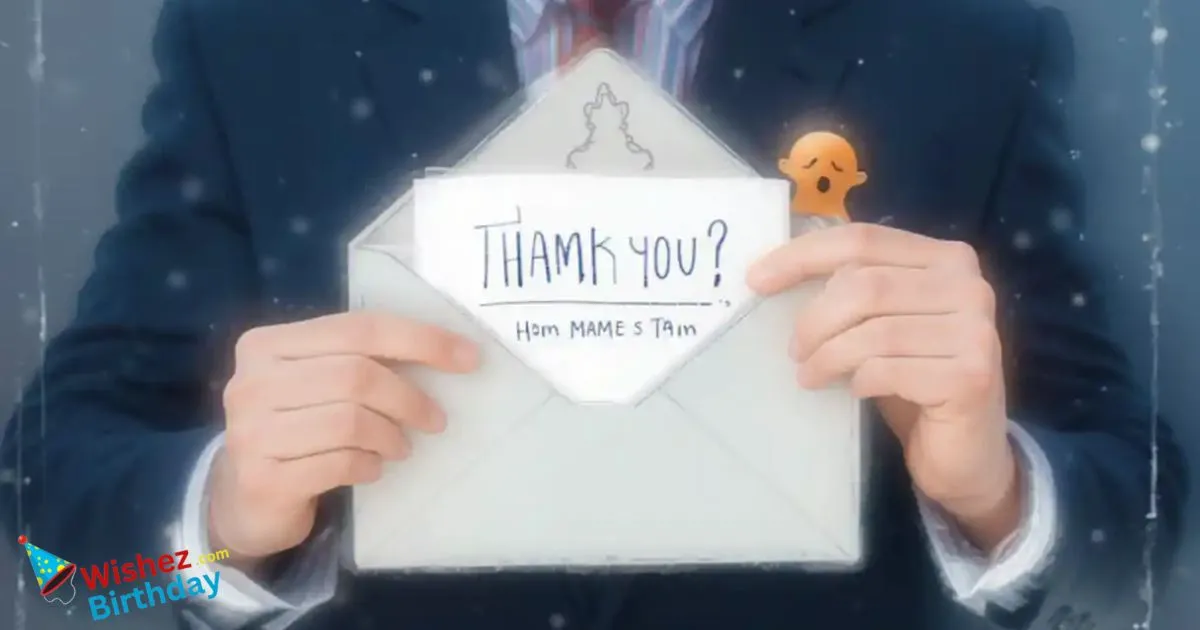“A simple thank you can go a long way, but when crafted thoughtfully, it leaves a lasting impression on your professor.”
In academia, professors often serve as mentors, guiding students through rigorous coursework and providing valuable insights that help shape their academic journey. Showing gratitude for their efforts can foster a positive relationship and demonstrate your respect for their hard work.
Crafting a perfect thank-you email is not only a polite gesture but also an essential skill for building a strong rapport with your professors. A well-composed email can express genuine appreciation while strengthening your academic ties. But how can you ensure that your email leaves a lasting impression?
If you’re uncertain about how to properly express your gratitude in an email, you’re not alone. Many students struggle with finding the right words. The good news is that with a few simple tips and a clear understanding of the purpose behind your message, you can easily craft a thank-you email that feels personal and thoughtful.
Throughout this post, I will guide you on how to make your thank-you emails more than just a formal courtesy. Join me as I share some heartfelt messages inspired by personal experiences, designed to help you craft the perfect thank-you email to your professors.
When writing a thank-you email, remember that it’s not just about saying “thank you.” It’s about acknowledging the specific impact your professor has had on you and your academic growth. By following a few simple steps, you can craft an email that feels sincere and thoughtful.
Let’s dive into the key elements of a well-constructed thank-you email that will impress your professors.
Defining the Purpose
Before you even begin drafting your email, it’s essential to define the purpose of your message. Why are you thanking your professor? Are you expressing appreciation for their support throughout the semester, acknowledging their guidance on a specific project, or simply thanking them for their time and dedication to teaching? Being clear on the reason behind your thank-you will guide the tone and content of your email.
In your email, specificity is key. Rather than sending a generic thank-you message, take a moment to reflect on how your professor’s actions impacted you. Did they offer helpful advice during office hours? Did they provide feedback that helped you improve your work? Including these details will make your thank-you email feel more personal and meaningful.
Getting Started
Once you’ve defined the purpose of your thank-you email, it’s time to get started. Begin by addressing your professor appropriately, using a professional and respectful tone. For example, start with “Dear Professor [Last Name],” followed by a brief introduction or statement of appreciation.
Acknowledge your professor’s efforts right away, mentioning the specific help or guidance they offered. For instance, “I wanted to take a moment to thank you for your insightful feedback on my paper last week.” You should always express your gratitude clearly and concisely right from the beginning. This will set the tone for the rest of the message.
Crafting the Body of the Email
In the body of your thank-you email, it’s important to expand on the reason why you’re grateful. Be sure to express your appreciation in a detailed and heartfelt way. This is where specificity comes in again. Think about the specific moments or actions that made a difference for you.
For instance, if your professor offered advice on a particular assignment, you can mention how their insights improved your work. If you received guidance on career decisions, explain how that advice has helped you move forward with more clarity. By providing these details, you’ll show your professor that you truly value their help and took their advice seriously.
Avoid writing long, drawn-out paragraphs. Be concise while still being sincere. Professors receive many emails, so keeping your message focused ensures that your appreciation doesn’t get lost in excessive detail.
Concluding Your Email
The closing of your thank-you email should leave a lasting positive impression. Express your gratitude once again to reinforce your message. For example, you could say, “I truly appreciate all the time and effort you’ve invested in helping me succeed.”
End your email with a polite sign-off, such as “Sincerely” or “Best regards,” followed by your full name. A formal closing is essential to maintain the professional tone of your message.
Remember, your email should feel like a genuine thank-you, not a required task. Keep it personal, and show your appreciation in a meaningful way.
Examples of Thank-You Emails to Professors
Now that we’ve covered the structure of a perfect thank-you email, let’s look at a few examples to help you better understand how to apply these tips.
Example 1: Thanking a Professor for General Course Experience
Subject: Thank You for an Amazing Semester
Dear Professor Brown,
I hope this message finds you well. I just wanted to take a moment to express my sincere thanks for your dedication and hard work throughout the semester. Your engaging lectures and insightful discussions made the course both challenging and enjoyable.
I particularly appreciated how you encouraged us to think critically about the material. Your approach not only deepened my understanding of the subject but also sparked my passion for the topic. Thank you for being such an inspiring educator!
Best regards,
Jons
Best Reply to Thank You Email from Boss
When replying to a thank-you email from a professor, it’s important to acknowledge their appreciation and express gratitude for the opportunity to learn. Here’s a simple reply example:
Subject: Re: Thank You for an Amazing Semester
Dear Jons,
Thank you for your kind words. I’m glad to hear that the course had a positive impact on your learning. It was a pleasure having you in class, and I’m excited to see how you continue to apply the knowledge you’ve gained.
Best wishes for your future studies,
Professor Brown
Example 2: Thanking a Professor for Specific Help or Advice
Subject: Thank You for Your Valuable Advice
Dear Professor Smith,
I wanted to personally thank you for taking the time to meet with me last week to discuss my career options. Your insights were incredibly helpful, and they’ve given me a clearer understanding of the next steps I should take. I appreciate the personalized advice, and I will definitely consider your suggestions as I plan my future.
Thank you once again for your continued support and guidance.
Sincerely,
Jons
Example 3: Thanking a Professor for Their Engaging Lectures and Valuable Insights
Subject: Thank You for Your Engaging Lectures
Dear Professor Johnson,
I wanted to take a moment to thank you for your engaging lectures this semester. I’ve gained so much from your classes, especially your insights on the complexities of modern economics. Your ability to explain difficult concepts in an understandable way has made a significant impact on my learning.
I look forward to applying the knowledge I’ve gained in my future courses.
Best regards,
Jons
Example 4: Expressing Appreciation for a Professor’s Support and Guidance
Subject: Thank You for Your Support
Dear Professor White,
I just wanted to thank you for the guidance and support you’ve provided me throughout the semester. Your encouragement during the difficult moments of the semester helped me push through and ultimately succeed. Your thoughtful advice on my paper made a big difference in my understanding of the subject.
Thank you again for all of your support.
Sincerely,
Jons
Example 5: Thanking a Professor for Their Inspiring Mentorship and Recommendation
Subject: Thank You for Your Mentorship and Recommendation
Dear Professor Green,
I wanted to personally thank you for your mentorship over the past year. Your advice has been invaluable, and I truly appreciate the time you’ve invested in guiding me. Additionally, I am incredibly grateful for your recommendation for the internship position—I believe it was instrumental in securing the opportunity.
Thank you once again for everything you’ve done.
Best regards,
Jons
Conclusion
Crafting the perfect thank-you email to your professors is a simple yet powerful way to express your appreciation and solidify a positive academic relationship. When you are thanking them for their support, insightful advice, or engaging lectures, a heartfelt message can make a significant impact.
By being specific, sincere, and concise, you can ensure that your gratitude resonates with your professor.
Remember, the key to a great thank-you email lies in clarity and personalization. Acknowledge the specific ways your professor has helped you and express your gratitude genuinely.
With the examples provided and the structure outlined, you can now confidently write a message that reflects your appreciation and leaves a lasting impression Email to Your Professors.
Thank you for taking the time to read through this guide, and I hope it helps you craft the perfect thank-you email for your professors. Happy writing!

Hi! I’m Lauren Reynolds, creating wishes that inspire kindness, growth, and happiness. I believe in the power of words to uplift and bring positive change into people’s lives.

